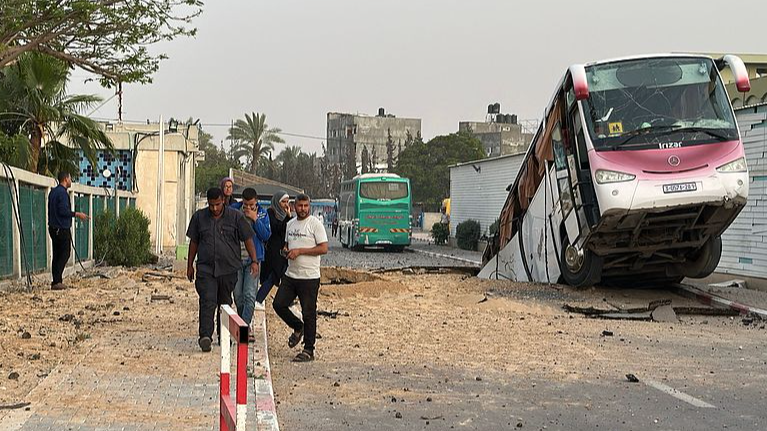Conflict flared on Tuesday as the al-Quds Brigades, the armed wing of the Islamic Jihad movement, launched rocket barrages toward southern Israel. Cities including Ashdod, Ashkelon and Sderot came under threat in retaliation for recent airstrikes on the Gaza European Hospital in Khan Younis, according to the group's press statement.
Sirens blared across the region as residents scrambled for cover. The Israel Defense Forces (IDF) reported intercepting two rockets midair, while a third landed harmlessly in open terrain. No casualties or significant damage were reported, but the exchange underscored rising tensions after reports that at least six Palestinians were killed and more than 40 injured in the hospital strike. The IDF said it targeted an underground Hamas command center beneath the Gaza European Hospital, accusing militants of using medical facilities as cover.
In response to the rocket fire, the IDF ordered an immediate evacuation of Jabalia city and its refugee camp, along with surrounding central Gaza neighborhoods. Residents were urged to seek shelter in designated centers in Gaza City as aerial operations continued.
Beyond the battlefield, the conflict is fueling a mounting humanitarian crisis. Gaza's health authorities warn that almost half a million people now face catastrophic levels of hunger, and over 400 aid workers have lost their lives since hostilities intensified. Access to food, medicine and essential supplies remains severely restricted under the ongoing blockade.
At the United Nations, China's permanent representative Fu Cong described Gaza as a "living hell" during a Security Council briefing, urging Israel to halt military operations, lift blockades and ensure unhindered humanitarian access. His plea reflects growing international calls for a swift ceasefire and accountability for civilian protection.
As rockets continue to fly and civilians bear the brunt of the conflict, global attention is turning toward diplomatic efforts to de-escalate the situation. Both sides face mounting pressure to curb violence and address the urgent needs of the region's most vulnerable populations.
Reference(s):
Islamic Jihad launches rockets at Israel in response to Gaza strikes
cgtn.com



